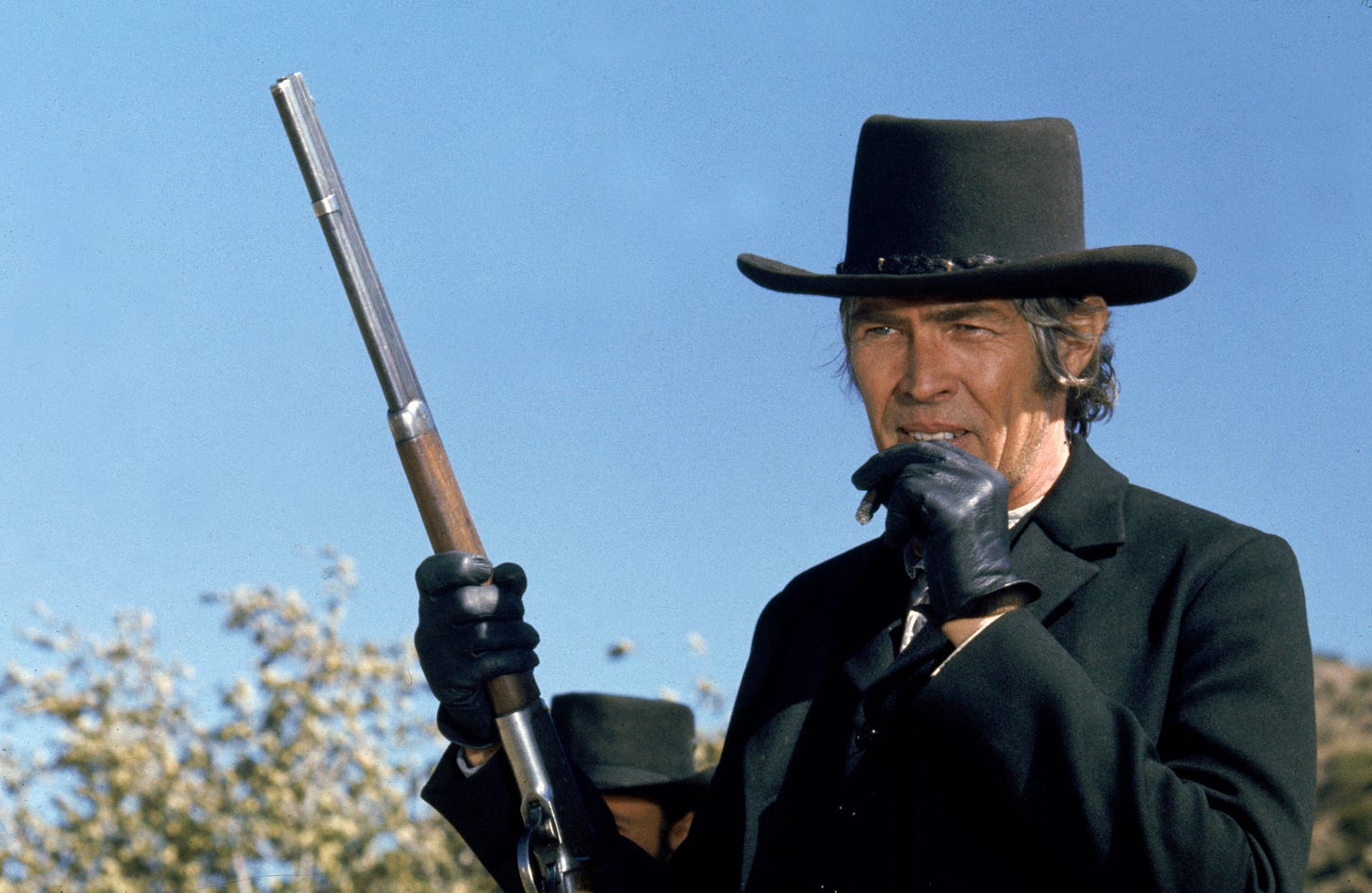The Fifty-Year-Old Western That Strikes at the Heart of a Divided America
On Sam Peckinpah's 'Pat Garrett and Billy the Kid'
Described by Martin Scorsese as ‘a masterpiece’, ‘Pat Garrett and Billy the Kid’ from director Sam Peckinpah just turned fifty. In the aftermath of another school-shooting and inevitable political finger-pointing, Peckinpah’s impossibly stylish historical Western still has a great deal to say about the fault-lines along which American culture and politics are divided.
Andy Ogles, the U.S representative for Tennessee’s fifth congressional district, has been accused by a grieving parent of making school shootings “more likely”, after Ogles was seen posing for a photograph with his whole family carrying guns. It was in his jurisdiction that the recent Covenant School shooting killed three children and three adults, illustrating once again how gun control remains one of the more intractable aspects of America’s culture war.
Few works of art have more to say about the nation’s seemingly never-ending gun dispute than ‘Pat Garrett and Billy the Kid’. Mostly set in New Mexico, the main plot involves former outlaw Garrett (James Coburn) being placed in charge of bringing Billy (Kris Kristofferson) to savage justice.
As in most of Peckinpah’s movies, men on opposite sides of the law are morally indistinguishable, and all struggle to negotiate a world in which might alone is right, and justice is served violently and unevenly. And because outlaws and law-enforcers are equally threatening, a man’s rifle is often his only defence against death.
Whereas in Peckinpah’s best-known Hollywood Western ‘The Wild Bunch’ (1969), robber baron General Mapache and railroad official Pat Harrigan are regularly seen exercising their corruption, in ‘Pat Garrett and Billy the Kid’, powerful patriarchs are even more sinister in their absence.
New Mexico Governor Lew Wallace (played by Jason Robards and most known to history as the author of ‘Ben Hur’) and cattle baron John Chisum (Barry Sullivan) appear in one scene each. Neither is seen committing any violence, but both are shown to be outsourcing the firing of guns to maintain their power.
The belief that guns are a tool of the underdog in the face of overbearing government is common, and it is no surprise that in the aftermath of the Nashville shooting, Georgia congresswoman Marjorie Taylor-Greene called for “more good guys with guns”. This echoes a tradition that goes all the way back to the ratification of the second amendment of the United States Constitution in 1791, which granted the right to bear arms as a way of holding government overreach in check.
America’s divided attitudes towards guns now often falls on geographical lines. As psychologist Steven Pinker points out in his 2011 tome ‘The Better Angels of Our Nature’, to this day northern coastal intellectuals are puzzled by the culture of their red state counterparts, with their embrace of guns, capital punishment, and sexual propriety. In ‘Pat Garrett and Billy the Kid’, these God and guns values are both critiqued and romanticised beautifully.
Bob Dylan, who appears in a supporting role, wrote the song ‘Knockin’ on Heaven’s Door’ for the film’s soundtrack. Its first use is in a scene where Sherriff Baker (Slim Pickens), having been shot, stumbles to the side of a river – which in Peckinpah’s films symbolise purity – to bleed to death, while being comforted by his wife, played by Katy Jurado, a veteran of Western masterpieces including ‘High Noon’ (1952). There is a salt-of-the-Earth quality to these lowly characters, despite their rough existence.
When bashing Obama’s presidency in a 2012 interview, crime writer James Ellroy opined: “It is not our birthright as Americans to be taken care of, from the cradle to the grave. This is a warrior nation…(Obama’s) every utterance goes against that.” His calling Americans a warrior people recalls a quote from Thomas Hobbes in ‘The Leviathan’: “During the time men live without a common power to keep them all in awe, they are in that condition which is called war.”
Some like to point out that neighbouring Canada also ranks highly in civilian ownership of guns, but does not appear to have the same problem with gun violence. Steven Pinker attributes this to the fact that the Royal Canadian Mounted Police got to the Western frontier early, avoiding the violent code of honour that characterised the American West.
As the movie’s opening and closing scenes show, Garret is slowly destroyed by the civilising process and the compromises he is forced to make in fulfilling his stated goal of becoming “rich, old, and grey.” Both the opening and closing scenes show the protagonists being gunned down, a vicious circle of mindless shooting, that is still not a thing of the past.



